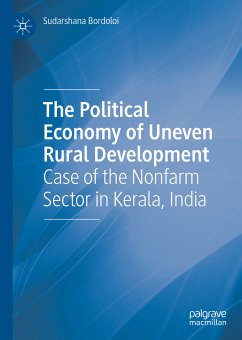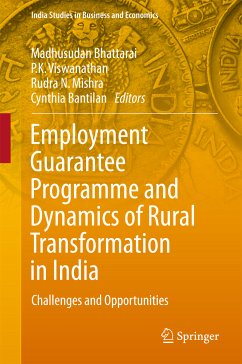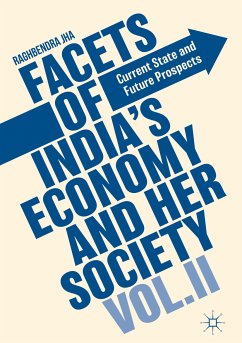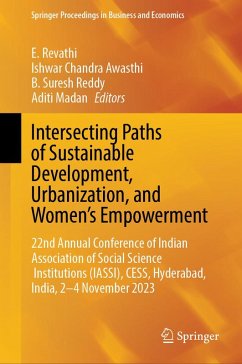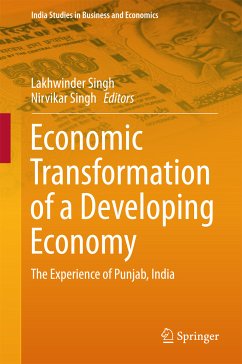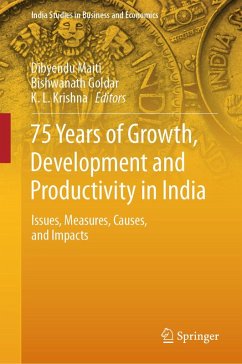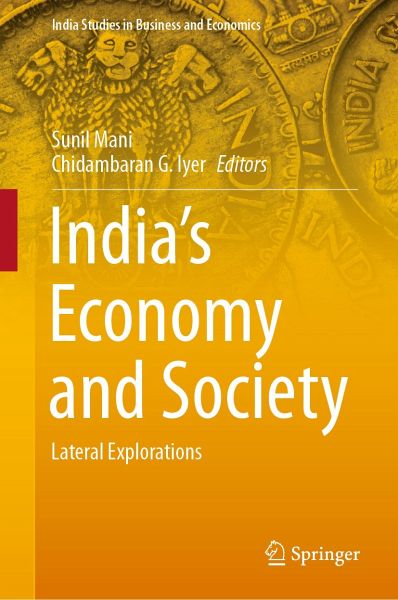
India's Economy and Society (eBook, PDF)
Lateral Explorations
Redaktion: Mani, Sunil; Iyer, Chidambaran G.
Versandkostenfrei!
Sofort per Download lieferbar
112,95 €
inkl. MwSt.
Weitere Ausgaben:

PAYBACK Punkte
56 °P sammeln!
This book is a collection of fifteen contributions that undertake a detailed analysis of seven broad dimensions of India's economy and society. All the contributions approach the problems in their respective areas empirically, while being theoretically informed. The book begins with a section containing detailed and empirically supported chapters on the recent crisis in India's agricultural sector and the reforms in the agricultural markets. Another section is dedicated to the issue of infrastructure financing, and new ways of financing large infrastructural projects are critically examined. O...
This book is a collection of fifteen contributions that undertake a detailed analysis of seven broad dimensions of India's economy and society. All the contributions approach the problems in their respective areas empirically, while being theoretically informed. The book begins with a section containing detailed and empirically supported chapters on the recent crisis in India's agricultural sector and the reforms in the agricultural markets. Another section is dedicated to the issue of infrastructure financing, and new ways of financing large infrastructural projects are critically examined. Other sections are related to innovations and technology impacts on industry; international trade; health and education; labor and employment; and the very important issue of gender. The selected discussion topics are both of contemporary importance and expected to remain so for some time. Most of the chapters introduce readers to data in addition to methods of analyzing this data, to arrive at policy-oriented conclusions. The rich collection carries learnings for researchers working on a wide range of topics related to development studies, as well as for policymakers and corporate watchers.
Dieser Download kann aus rechtlichen Gründen nur mit Rechnungsadresse in A, B, BG, CY, CZ, D, DK, EW, E, FIN, F, GR, HR, H, IRL, I, LT, L, LR, M, NL, PL, P, R, S, SLO, SK ausgeliefert werden.



